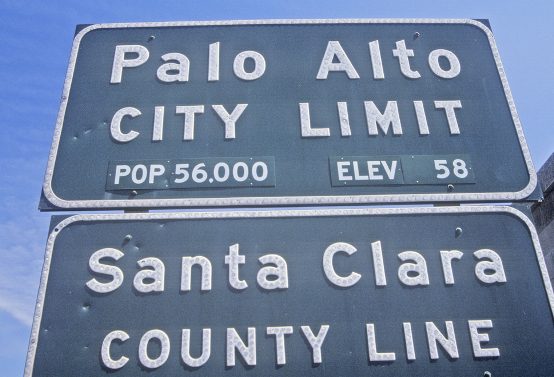Tech Can’t Escape Geography After All

Are conservatives doomed to forever miss out on the booming innovations of the tech sector? That’s the question Alexis Madrigal asks at The Atlantic in response to an admittedly startling survey result from Pew that only 4 percent of consistent conservatives (by their counting) would ideally like to live in the city, compared to 46 percent of consistent liberals. The Pew report is very interesting in its own right, and I hope to engage it at length next week, but Madrigal’s projection of a “new digital divide” between urban, tech-savvy liberals and rural, disconnected conservatives merits consideration on its own, for how simply it explodes one of Silicon Valley’s favorite myths about itself.
The networks comprising the World Wide Web have frequently been ascribed the power to “destroy geography” by connecting people and knowledge from across the world in a democratic marketplace of ideas. Enthusiasts of online education gush about the potential of Massively Open Online Courses to put a master teacher in every living room across the country, so that a Montanan farmer’s boy can learn artificial intelligence from the same Stanford professor as a student sitting in Palo Alto. Telecommuting enthusiasts see the potential of working from home to connect skilled workers with employers across the country without any painful dislocations. The democratic meritocracy of the tech industry, it is said, will allow good ideas to bubble to the top wherever they may originate. Why, then, are the biggest tech companies all coming out of a handful of major cities?
And as Madrigal notes, “It’s not just that the latest round of hot companies are deciding to headquarter in cities like New York and San Francisco; it’s also that many of these companies make sense, for the most part, only in urban environments.” Uber, the ride-sharing app recently valued at around $18 billion, relies on dense concentrations of people that can be served taxi replacements at sufficient volume to keep its drivers engaged and available. It also relies on people not already having their own car with them, a particular feature of cities. Madrigal also notes that one of the seemingly science fiction technologies most likely to become a reality, self-driving cars, “require detailed, expensive, and regularly updated maps to operate. For that reason, those vehicles will almost certainly deploy in cities first, and maybe only in places where enough people drive to make the investment in mapping the area worth it.” It is unlikely that any near-term future will see charismatic Baptist preachers in the rural South urging their parishioners to “let Google take the wheel.”
As George Packer noted in the New Yorker last year, and Ellen Cush explored expertly in “The Bacon-Wrapped Economy,” the tech industry is great at solving the problems of 23-year-olds in San Francisco, because it is largely composed of 23-year-olds in San Francisco. While there are genuine breakthroughs occurring in distributed finance in developing economies brought about by the advent of cell phones in rural villages, most of the tech industry is not concerned with getting Togolese farmers the best price for their yams, or making small towns more livable.
Even companies that have made genuine, industry-shaping, world-shaking innovations, like Google did when it reinvented the search engine at the close of the dot-com bubble, are dependent on the close proximity enabled by their cities to be able to connect with investors and talent. As tech pioneer and current venture capitalist Marc Andreeseen related on the EconTalk podcast last month, Google looked from the outside like one more run of the mill search engine start-up in an already-crowded market, even though it had made significant technological breakthroughs, and “you had to be very close to the company to realize this. This was very hard to call from the outside. And a lot of people who passed on Google, passed on Google without ever getting to the point where they learned the details.” Would Sergey Brin and Larry Page have gotten the funding to make Google what it is if they were coding in South Dakota rather than Silicon Valley? Or would they currently be engineers at Yahoo!, having cashed out on PageRank for a few modest millions?
As much as specific products and services can be outsourced around the globe via the internet, the people and ideas moving the industry forward as a whole are concentrated in creative communities where the a finite cast of characters can move through the prescribed patterns of experiences necessary to create a great tech entrepreneur. The Internet may connect a World Wide Web, but its flattening of the world turns out to primarily enable ideas and technologies to flow from city to city.